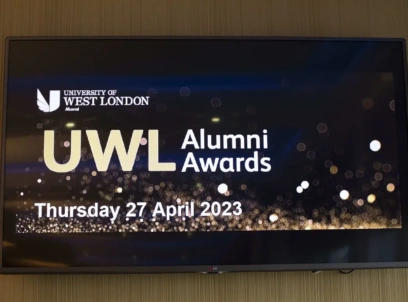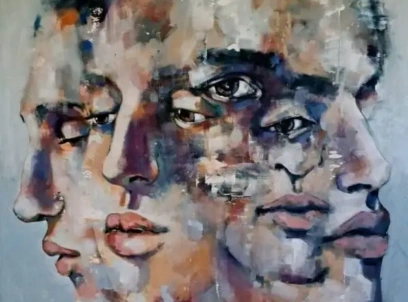Pelada emerged from Montreal’s underground electronic scene and has now built up a fanbase worldwide, generating excitement with Tobias Rochman’s unique minimalist instrumentals and vocalist Chris Vargas’s punkish shouting of Spanish lyrics. Throughout the decade of their project, they have produced various resistance anthems and are now concluding their final tour before they go their split ways. This interview observes not only their legacy, but also their view on the techno/electronic genre, which has continued to expand and gain popularity in younger generations.
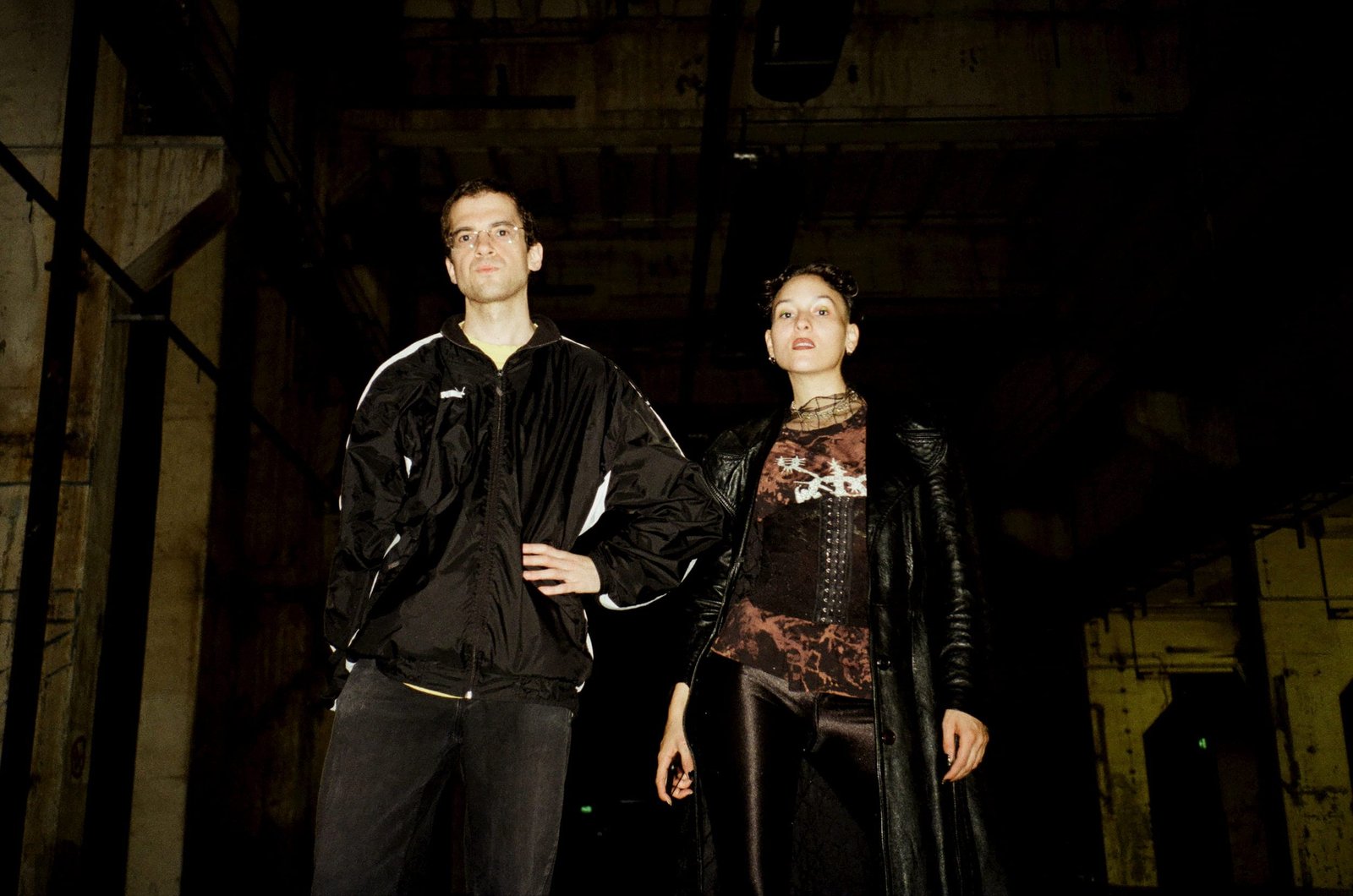
Photography: Liza Kin
The Evolution of Pelada
The duo broke out from the Montreal rave scene in 2014, but one of the most meaningful outcomes of the project for Chris is the connection they have been able to make to the lantinx community. Though Spanish is their mother tongue, they felt like writing lyrics in the language was something they’ve never previously attempted and wanted to challenge themselves. This idea of readily accepting a challenge is something that stands out about the pair. Unlike many other techno artists, their performances have never relied on visuals or backdrop videos, instead working to see ‘What two people can do on stage to keep people’s attention for an hour.’
‘What two people can do on stage to keep people’s attention for an hour.’
The energy that radiates from Chris’s performance is contagious, and the screaming in contrast with the minimalist instrumentals works to captivate the audience.
Furthermore, their latest album was entirely self-released after the label they were working with backed out at the last minute. Although they felt a range of pressure to reach a certain quality that has now become associated with Pelada, ‘Ahora Mas Que Nunca’, translated as ‘Now More Than Ever’ is a captivating concept album consisting of twelve tracks that discuss various issues, as seen in ‘La Gente Se Levanta’ and its attack on capitalism and its ruthless treatment of people. The name of the album is non-descript, which Tobias hoped would be ‘a blank name that people could project their own meaning onto.’
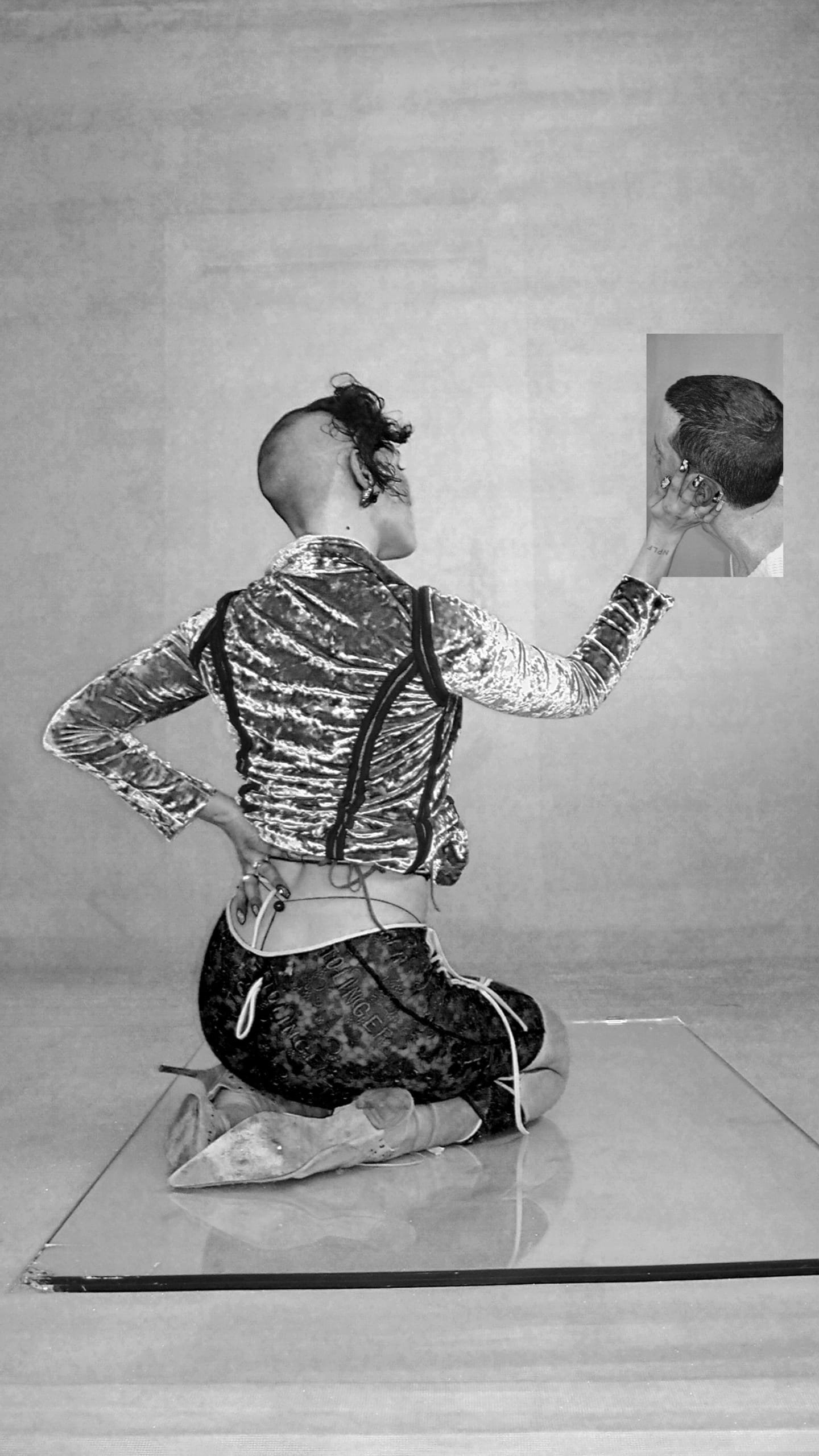
This album differed greatly from the first, because with ‘Movimiento Para Cambio’, Pelada was unable to tour due to Covid restrictions. They had to improvise within the circumstances to continue delivering music to their listeners, whether that was through recording performances in Tobias’s flat, or hosting zoom shows. Chris admits that this was a difficult period as the dynamic quality of their songs is usually emboldened by the energy of the crowd. They compare the experience of Zoom performance to seated shows, such as one they performed at Mutek where people were masked and couldn’t move around. But what they were able to do during the pandemic is begin writing ‘Ahora Mas Que Nunca’, which they are touring with now.
The Ever-Changing Rave Scene
When it comes to public performances, they find excitement in both bigger venues and smaller, more intimate crowds. Chris observes that despite headlining shows appearing more challenging, there is an added intimidation to being able to see people’s faces in smaller scale events. The pair has previously performed at the notorious Berlin club Berghain. I was interested to know what they thought about the notion of gatekeeping in the raving scene; something Tobias called ‘filtering’, when I asked him about it. Berghain is known for its strict entrance policy, and though Pelada notes that the idea of turning people away for not being dressed in all black is ‘bogus and elitist’, they do think that the entrance policy helps maintain an accepting space in the club. With Berghain, and other similar clubs being a sort of ‘dark playground’, there is importance in preserving a demographic welcoming of queer and sexual expression. One of the duo’s favourite shows they’ve played is in Tokyo, and the rawness of the club, irrelevant of fashion sense but rather focused on the music, was something that stood out to them.
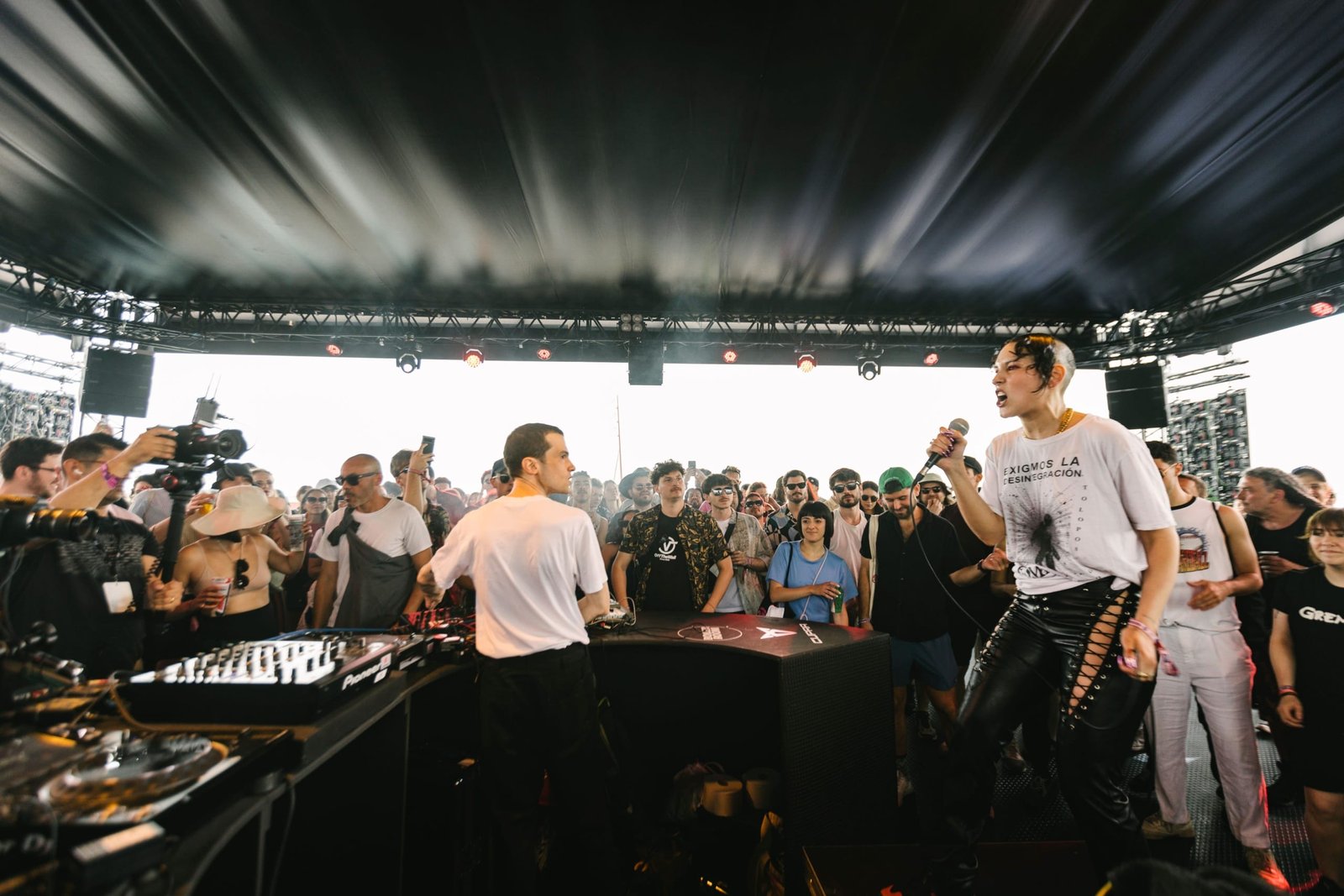
This brought me to wonder about the extent to which the rave scene is growing to be mainstream. When asked about this, Tobias confirms that indeed it has already become mainstream, but beneath that remains a real scene.
‘It’s a pendulum: people will get too much of it and fall out of love, while a core few will maintain it. Even within techno there’s trends – now that’s dub techno, while a couple of years ago it was fast bpm’s. The electronic scene cycles through its past. But people will always want to party and celebrate life.’
And in terms of the fashion sense that has come to be associated with the genre, whether that is all-black outfits checks on Instagram or outrageous but cool experimental looks. Chris notices that it’s not necessarily an identity to the electronic scene, but rather to the online presence fashion has when it’s associated with music. ‘Though there have been trends, there is a crossover of people listening to different music,’ they say, ‘so there’s no set way to dress to a genre.’ Tobias adds that there is value in letting young people be young people: ‘I don’t want to be negative to young people expressing themselves if they’re getting energy and social connection from sharing their outfit.’
Now more than ever, integration into the rave scene has become simplified by technological progress. Tobias talks of the difficulty of initially integrating into the rave scene back when they began, starting with only a drum machine and a synthesizer, as well as very rudimentary voltage control. They would set up the gear at raves and try to hold their own amidst the DJ’s and live acts, until eventually it became more of a business where they would produce a consistent product. Pelada has tried to stay on the cutting edge of progress with samplers, and to avoid falling into the simplicity of simply performing what’s been put on a USB: ‘We wanted to keep a sort of danger, keeping it live and fragile. That’s what’s kept it more captivating.’
‘We wanted to keep a sort of danger, keeping it live and fragile. That’s what’s kept it more captivating.’
Music As Activism
There is captivation in their lyricism as well – a bravery in using music to offer social commentary and political critique. However, Chris doesn’t believe that any artist has a responsibility to speak on politics. The vocalist concedes that an artist can be a political person and choose not to intervene that with their own music: ‘Life is hard right now and money is always an issue, so if DJ’s just want to be paid to party, that’s okay. It is important to have some activism in your life, whether that’s public or private.’
‘It is important to have some activism in your life, whether that’s public or private.’
Tobias agrees that each person’s political awareness needs to come from within, rather from a particular artist’s influence, as class consciousness cannot start and end with a singular musician. Though Pelada talks about social justice issues, they know that ‘resistance raving’ on its own isn’t enough either. Throughout their career they’ve worked hard to stay uncompromising, and while at times they’ve played shows more corporate, they’ve also performed in anarchist compounds and illegal warehouse raves in Russia, Columbia, Japan, Australia and others. For Chris, it was important to talk about problems that they weren’t hearing much about, and art as a form of activism is something they want to continue exploring as they embark on their career, separate from Tobias.
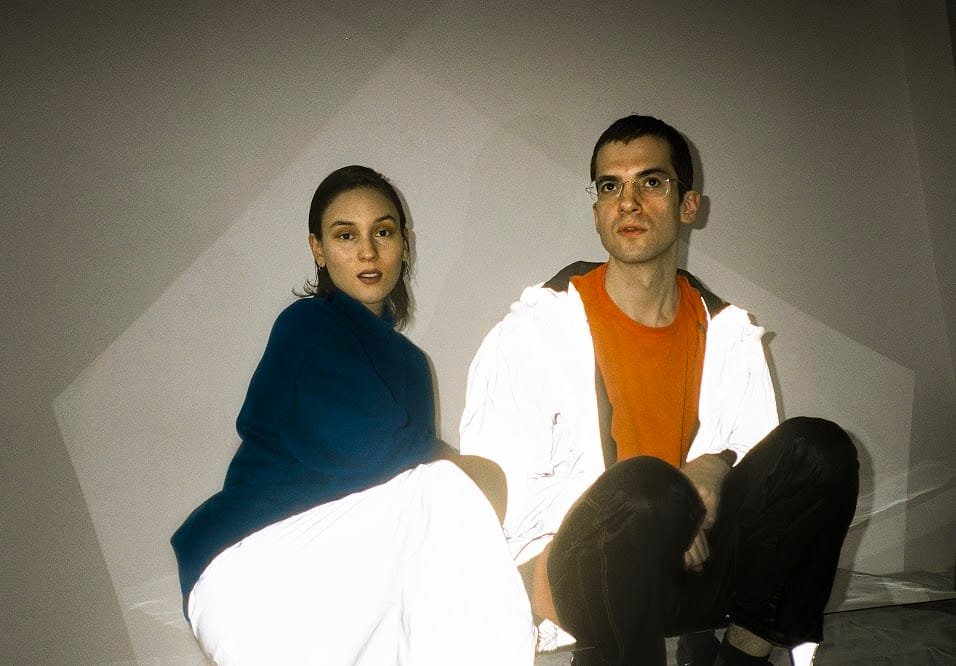
Closing the Curtain on Pelada and Looking to the Future
As they continue to establish themselves as individual artists, both look back at the decade of Pelada with warmth and appreciation. While it wasn’t always easy balancing the monetisation of their friendship and the technicalities of the project, through getting to travel the world and put their all, ‘We have achieved more than what we ever thought possible. Right now, we want to focus on giving the best last show.’
‘We have achieved more than what we ever thought possible. Right now, we want to focus on giving the best last show.’
Looking towards the future, Tobias hopes to write for and support younger artists, as well as get back into solo projects and put his energy into something that would be entirely his vision. Chris is in a similar boat, having already started writing lyrical ideas and exploring sounds. They are interested in entering a musically softer era, and plan to focus next year on taking care of their mental health and staying put in Montreal.
Their advice for young people pursuing electronic music is as real and raw as their music:
‘You need to want it really badly. See it as music and not just an extension of your brand or a personality showcase, that stuff won’t give you longevity. You have to work in service to your art and raise it to the highest degree.’
‘You have to work in service to your art and raise it to the highest degree.’
What Chris adds is an important warning to be mindful of people in the industry taking advantage. They suggest leveraging technology and embracing resources like Chat GPT for questions about contracts or technicalities. But of course, any art form is about passion, something that radiates from both of them as they talk about Pelada, as well as the new journey they are about to embark on. The duo believes in music being a product of passion: ‘Make music you’re proud of and don’t rush anything. Have fun!’

